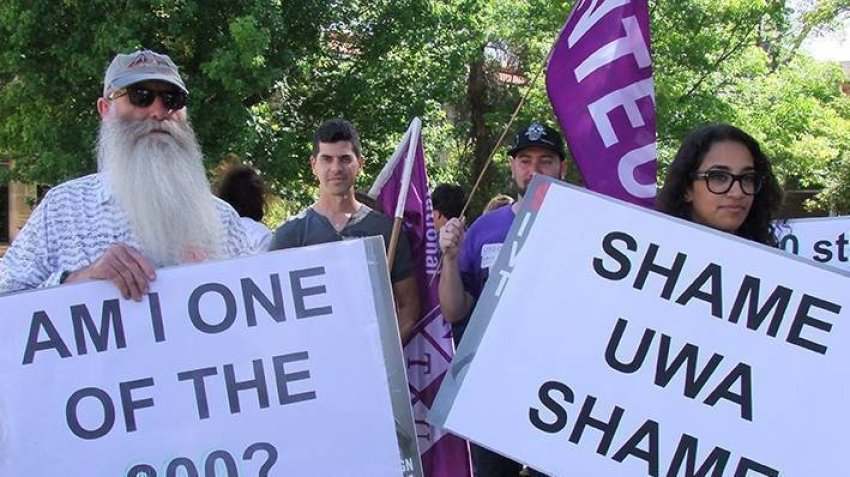
On June 18, 78% of National Tertiary Education Union (NTEU) academic and general staff members at the University of Western Australia (UWA) approved a proposal to vary their enterprise agreement.
This followed negotiations between the NTEU and UWA management under the union’s Jobs Protection Framework (JPF). UWA was one of only a few universities to sign up to it.
On June 26, all staff will vote on the proposal to vary the 2017 UWA Academic, Professional and General Staff Agreement, which covers pay and conditions.
The proposed variation provides for two weeks’ paid COVID-19 leave for all employees and guarantees income support to any permanent staff member stood down due to the impacts of COVID-19 (staff in public universities have been excluded from the federal government’s JobKeeper scheme). It also defers a January 2021 pay rise for six months and cancels the payment of annual leave loading to staff this year.
NTEU members who oppose the EAV are concerned that the agreement change will not save jobs, but rather shows management that workers are easy targets. They have produced a video promoting the no case.
They say the proposed variation adds up to a 10% pay cut of up to $247 a fortnight for some staff and a pay cut of up to $6420 a year for professional staff members.
Meanwhile, some union officers at the branch and national level have come under fire for refusing to circulate material stating the “no” case. According to UWA-based NTEU Fightback member Chris Grant: “The online ballot paper had links to the ‘Yes’ campaign on its website, but no opportunity to put [the no] position. They also repeatedly refused to accept our motions in branch meetings.”
An NTEU Fightback UWA flyer said the UWA Vice-Chancellor and the NTEU national leadership had “sold the enterprise agreement variation as a way to avoid job cuts”, but that the EAV clauses explicitly allow for “forced redundancies, with protections for casuals being weak and not applying unless those casuals can prove a ‘reasonable expectation’ of ongoing work, which, in practice, is just about impossible”.
Furthermore, last year UWA had $2.1 billion in assets and a consolidated operating budget of $121 million, meaning it could easily afford to absorb the costs of the pandemic crisis. This appears to be supported by modelling by Ian Marshman and Frank Larkins from the Centre for the Study of Higher Education, who found that UWA “has sufficient reserves to cover all loss cases, short and longer term” from the fall in international student enrolments due to the pandemic. It reflects “both a comparatively modest reliance on international fee revenue and its unenviable level of cash and investment reserves”, they said.
Higher education workers, who have been forced to take on increased workloads and survive amid casualisation, are now being asked to bail out some of the richest institutions in Australia, the flyer said.